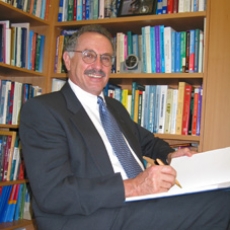
Feeling a sense of guilt or obligation towards an employer can increase an employee's commitment to an organisation, a University of Queensland Business School researcher has found in a study of Chinese workers.
Professor of Management Neal Ashkanasy recently co-authored a study in the Asia Pacific Journal of Management about human emotion and the link to organisational commitment, conducted with 230 individuals across eight mainland Chinese firms.
The study found employees were more likely to be committed to an organisation if they felt a sense of mutual obligation and also if they felt that they were actually getting things done.
"We found people feel like they're committed to an organisation because they are achieving their goals and they also feel they owe some debt of obligation," Professor Ashkanasy said.
"In China there is a saying that if you are given a drop of water you should repay it with a fountain.
"In the East or the West, employees similarly feel a debt of obligation to their employing organisation when the organisation has done something for them."
The UQ Business School Professor of Management said that employers could not necessarily play on these feelings of guilt, but rather that it was about establishing a "psychological contract" between employees and employers.
"Guilt is a negative emotion but it is also quite a strongly motivating emotion," he said.
"In the psychological contract there is a feeling of mutual obligation. The emotion of guilt comes out in relation to meeting your obligations so if I don't meet the obligation I haven't done the right thing."
Professor Ashkanasy said the study also found that the relationships of a work group were critical to ensuring commitment to an organisation.
"We found that fear and upset lead to lower levels of commitment and these occur when there is relationship conflict between the group, whereas guilt and determination are individual experiences," he said.
"It is emotions that drive not only attitudes but behaviours in an organisation yet so many managers are not aware of this, don't understand it, or even feel threatened by it and will often stand back and not know how to handle it."
Professor Ashkanasy said the study —- conducted with Dr Yan Li from the City University of Hong Kong and Professor David Ahlstrom from the Chinese University of Hong Kong —- marked the first time that the theory of emotions driving people's behaviours and attitudes in the workplace had been tested in China.



